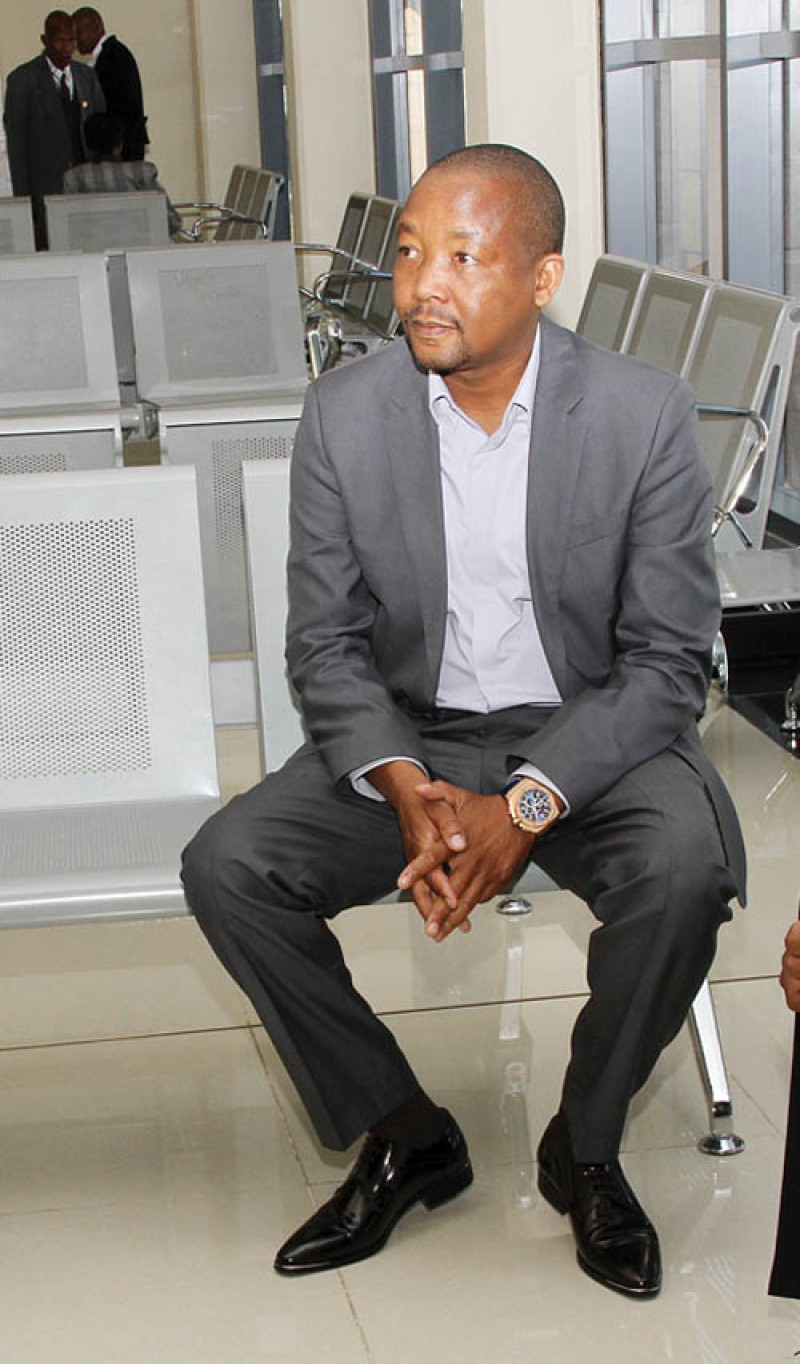State calls for lesser charge in Sebina case
Mpho Mokwape | Thursday April 23, 2015 18:34


Sebina, who the court last June ruled that he has a case to answer after acquitting his accomplices Setimela and Nkuna; is accused of killing Lesley Manga Ntshwane over an argument over missing watches.
State Prosecutors, Ambrose Mubika and Mmapatsi Tshimologo, yesterday before Justice Key Dingake of Gaborone High Court made admissions that the deceased may have died of natural causes.
Mubika, during the final submissions, said in the event that the state pathologist did not exclude the possibility of the deceased dying as a result of natural causes, they could only try proving that the deceased died as a result of the actions of Sebina.
“We have adduced evidence from the pathologist who opined that the deceased died due to head injuries.
“The pathologist too, did not exclude the possibility of the deceased dying as a result of cerebral eurnyrism, a condition the defence experts opined was natural and unrelated to the injuries of the deceased,” he said.
He said in the light of the evidence there was no doubt as to the cause of death as testified by the state pathologist, pointing out that it was equally possible he might have succumbed to cerebral eurnyrism.
“It is accepted that the condition of the deceased was improving from the day he was admitted at hospital until 30 May, 2011 when he suddenly ‘crushed’.
“The defence, to their credit, led evidence to the effect that the sudden deterioration in the condition of the deceased heralded the onset of cerebral eurnyrism.
“It is common ground that where there is doubt, it works to the benefit of the accused person,” he said.
Mubika further submitted that having conceded that the deceased could have died of natural causes, it followed that the accused could not be found guilty of manslaughter.
He said for manslaughter to succeed, it should be proven that the accused unlawfully caused the death of the deceased.
He said therefore manslaughter, as a competent verdict would not stick. It was state’s submission that there was sufficient evidence to justify the conviction of the accused with the offence of grievous harm.
“Given the admitted post mortem report, which details a catalogue of injuries sustained by the deceased, there was no doubt that the injuries sustained by the deceased, fall within the definition of the grievous harm,” he said
Mubika questioned the defence on why the accused insisted that the deceased be transferred to Bokamoso Hospital and that the accused even offered to pay all the expenses and at the same time, contributing financially towards the deceased’s funeral expenses.
“Why did he do so? This is the man he did not know as he claimed in his unsown statement. This is the man he had no previous contact with.
“Why then did he pay so much towards a total stranger’s burial? I said he did so because he was the one who inflicted serious injuries on the deceased.
“Apart from the proved facts pointing in that direction, common sense dictates so. The deceased’s blood was also found in the accused’s car and his body was found in his warehouse,” he said.
Sebina’s attorney Sidney Pilane immediately countered the state’s submissions, arguing that the state had failed in their case because the accused pleaded guilty to common assault and the state rejected it.
“The case of grievous harm did not arise then. Grievous harm is no verdict for murder therefore the case must fall. It (grievous harm) is not an essential for murder.
“The prosecution has not led evidence on who assaulted the deceased. It could have been the other any of the previous co-accused person.
“The only evidence put on record is that the accused was assaulted,” he said.
Pilane closed their case saying the state prosecution had failed to produce any evidence linking their client to the murder.
“We rest our case. The state had failed to re-create the events of that fateful day and they have failed to produce any evidence implicating my client,” he said.
The defence team that included Pilane, Moses Kadye, and Unoda Mack had called seven witnesses including Sebina and four doctors from South Africa while the state prosecutors, Ambrose Mubika and Mmapatsi Tshimologo closed their case last year with seven witnesses.
Judgement has been reserved.
